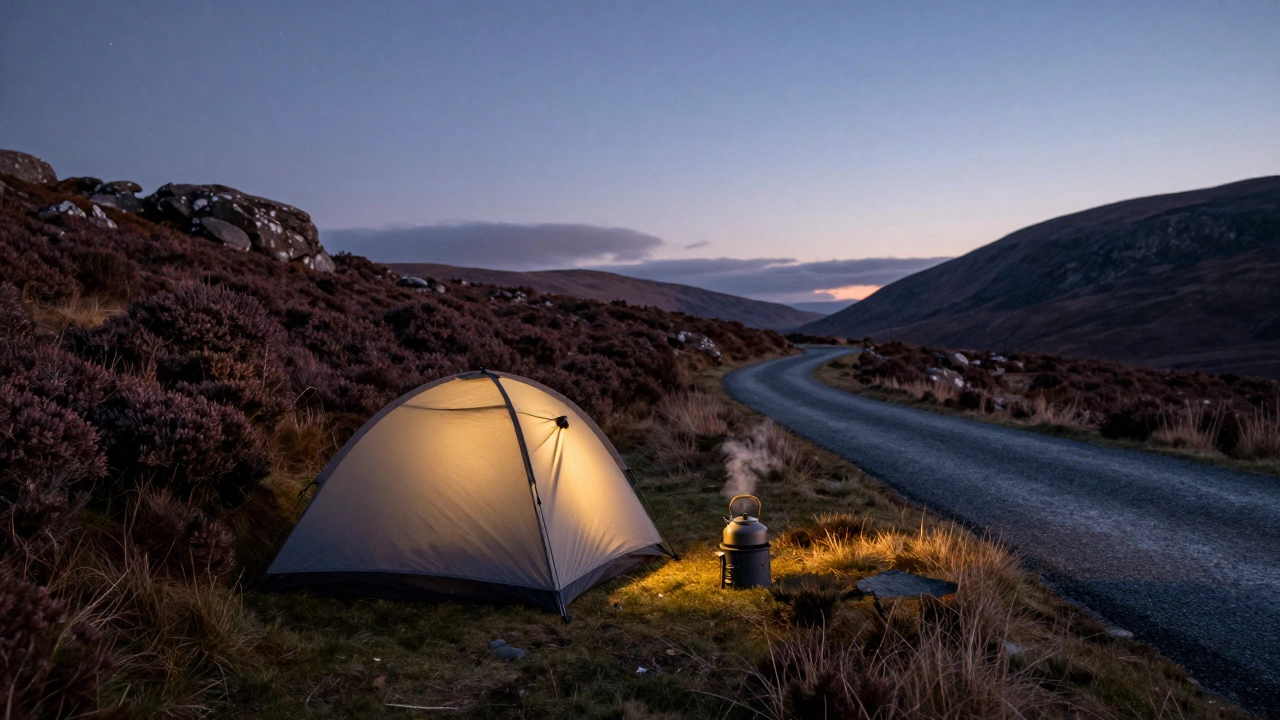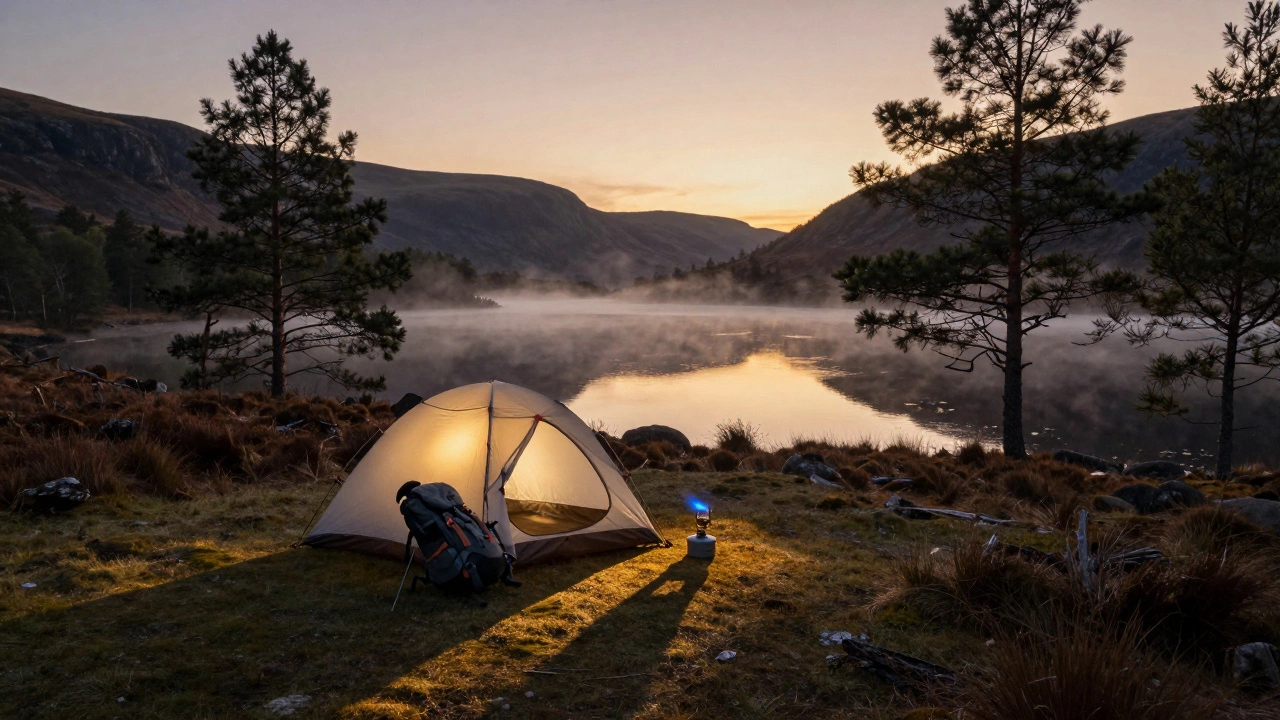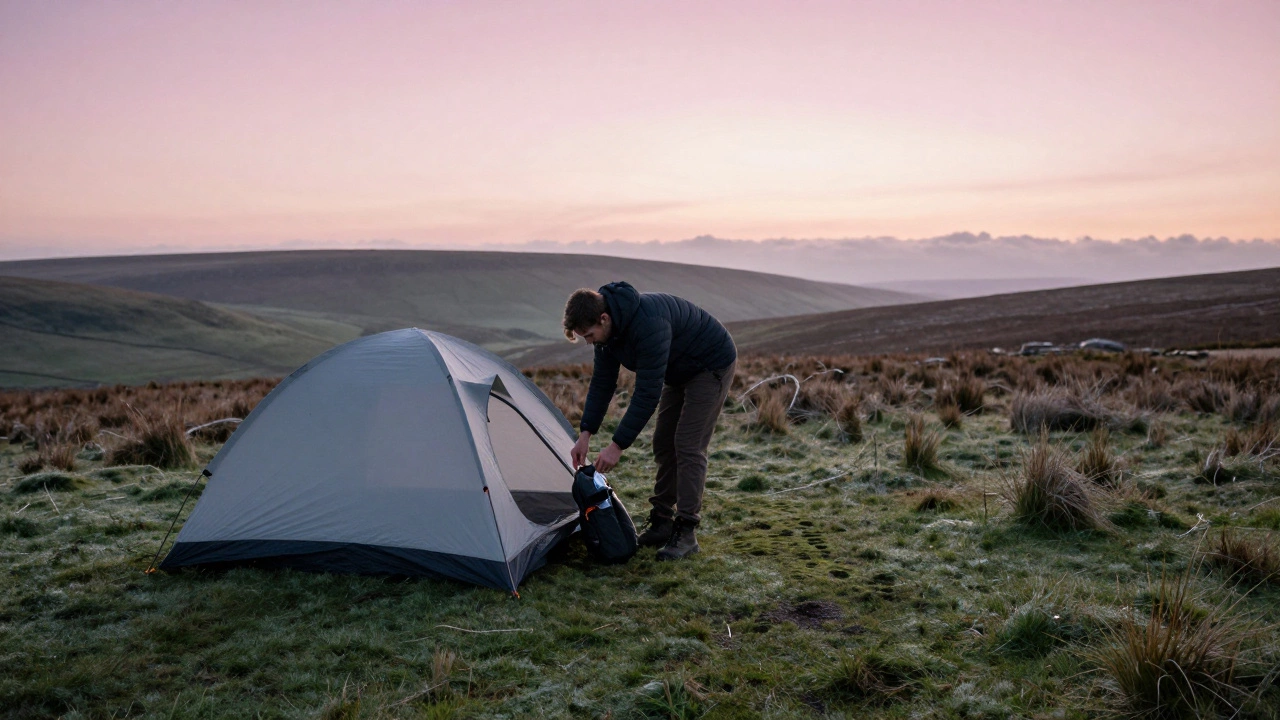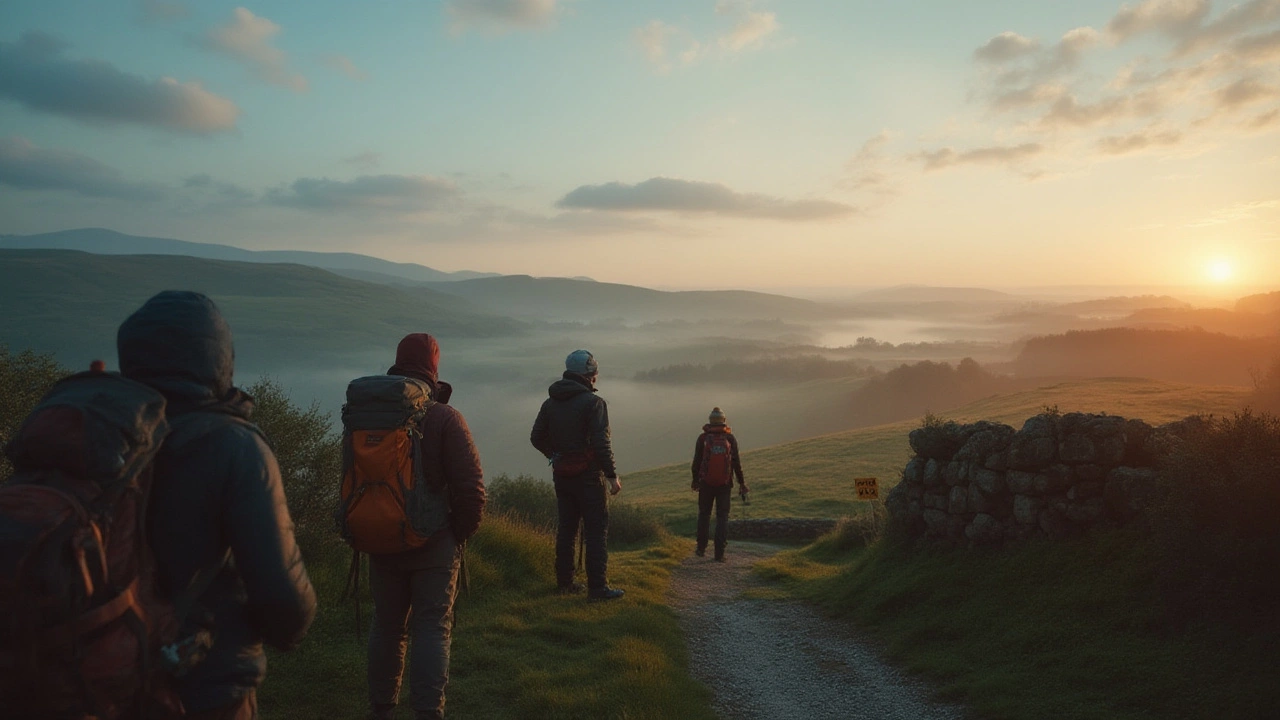Wild Camping Legality: Know the Rules Before You Pitch
If you love the idea of sleeping under the stars without a booked site, you’ve probably wondered whether it’s legal. The short answer: it depends on where you are, what you’re doing, and how you behave. In the UK the rules differ between Scotland, England, Wales, and Northern Ireland, and even within each country local bylaws can change the picture. Below you’ll find the most useful facts to keep your adventure legal and hassle‑free.
Where Wild Camping Is Generally Allowed
Scotland is the easiest place for wild campers. The Scottish Outdoor Access Code gives you the right to camp on most unenclosed land as long as you follow the "responsible access" principles – stay away from crops, keep a low profile, and leave no trace. In England and Wales the situation is tighter. Most public land – forests, moorland, and some coastal paths – is owned by the Crown or a local authority, and you need the landowner’s permission. Many national parks and Areas of Outstanding Natural Beauty (AONBs) have specific bylaws that forbid overnight stays, especially on beaches.
Coastal beaches are a common question. Some English beaches allow a night’s stay if you are out of sight of the public and the tide, but many have bylaws that make overnight camping a fineable offence. Scottish beaches are more permissive under the same access code, though you still need to respect any posted signs. Public parks in the UK are usually off‑limits for sleeping – a quick glance at the park’s signboard will tell you if a night is allowed.
How to Stay Legal and Keep It Low‑Impact
First, always look for a sign or check the local council website before you set up. If you can’t find a clear answer, treat the land as private and move on – it’s better to spend a few minutes searching than risk a fine. Second, keep your camp small. A single‑person tent or a compact motorhome can fit into a discreet spot without drawing attention. Avoid bringing large tables, extra chairs, or noisy equipment.
Third, follow the Leave No Trace principles: pack out everything you bring in, use a portable stove instead of a campfire where fires are banned, and bury human waste at least 20cm deep if no toilet facilities are available. Fourth, respect neighbours. If you hear a local walking by, be polite and ready to pack up if asked. Finally, stay aware of the tide schedule on beaches – you don’t want your tent swept away at high tide.
For motorhome travellers, the same rules apply. A motorhome counts as a vehicle, so you must not park on private roads or in restricted zones. Use designated motorhome stops where they exist, and if you need to park off‑site, make sure the area is not marked as a no‑parking zone. Many UK motorhome hire companies, including Teesside Motorhome Adventures, provide guidance on legal spots near campsites and public lands.
To sum up, wild camping can be a fantastic way to explore the UK’s countryside, but it’s not a free‑for‑all. Know the local rules, keep a low profile, and leave the place cleaner than you found it. By doing so you’ll enjoy the freedom of the road and stay on the right side of the law. Want more details on specific topics? Check out our guides on beach camping, public park rules, and motorhome etiquette – they’re packed with practical tips you can use right now.
Can You Camp on the Roadside in the UK? The Real Rules for Wild Camping
Can you camp on the roadside in the UK? The truth is complicated. It's legal in Scotland, restricted in England and Wales, and always depends on how you behave. Learn the real rules, where it's tolerated, and how to camp responsibly.
Can You Camp in Any Woods in the UK? The Real Rules for Wild Camping
You can't camp anywhere in the UK's woods - laws vary by region. Scotland allows wild camping with rules; England and Wales require permission. Dartmoor is the only legal exception in England. Follow the rules to protect nature and keep access open.
Why Is Wild Camping Banned in England?
Wild camping is illegal in most of England due to strict land ownership laws. Learn why it's banned, where exceptions exist, and what legal alternatives you have.
Wild Camping Laws in the UK: Why Is Camping in the Wild Illegal?
Curious why wild camping is illegal in most of the UK? Find out what makes the laws unique, how land rights affect campers, and where you can (and can't) sleep under the stars.



